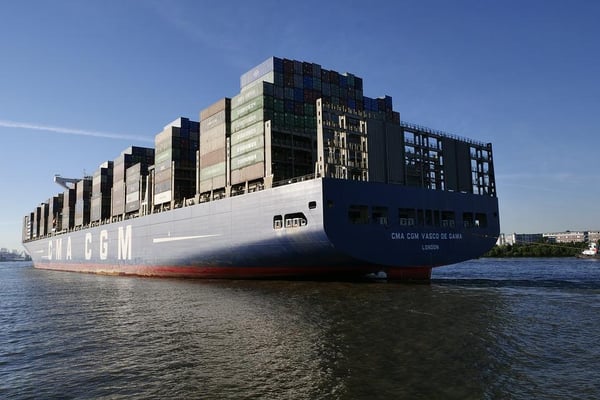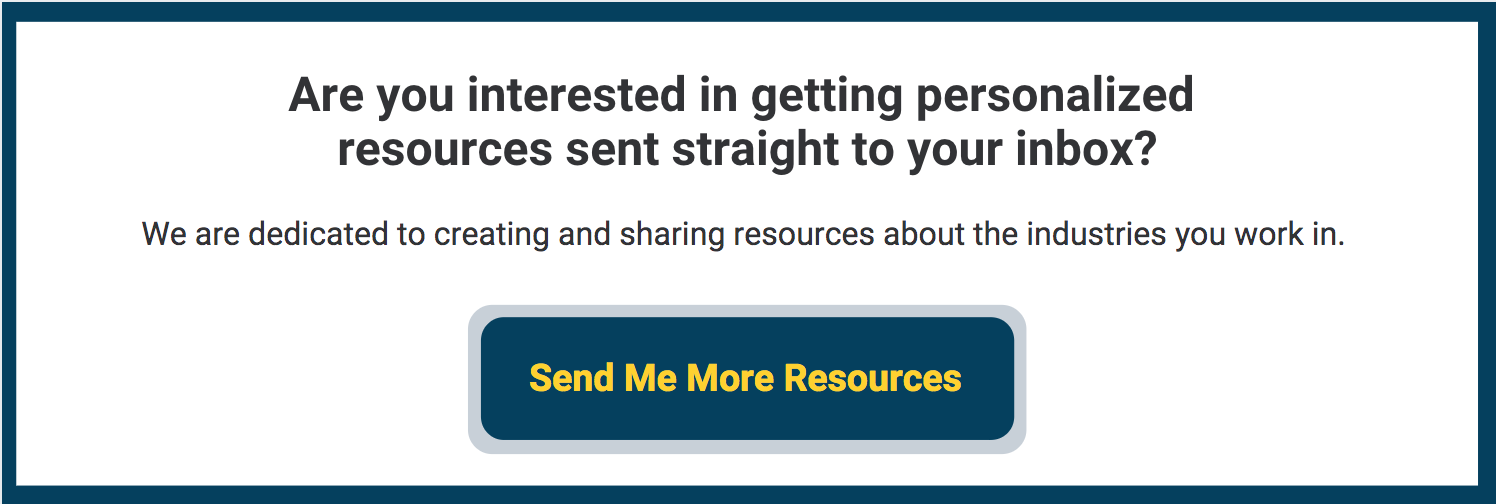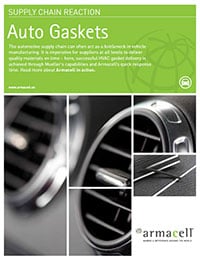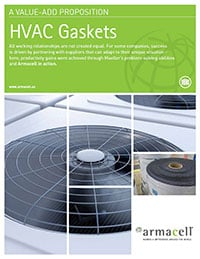.jpg?width=600&name=image3%20(1).jpg)
Great products start with great materials, making sourcing an important step in any supply chain.
As procurement officers, choosing the right material source for both you and your customers can be a difficult decision. Should you source materials domestically? Or should you look offshore for materials? Does the source even matter? To answer these questions, we spoke with our sourcing experts to determine the best ways to choose a material source for your customers. With these guidelines, you’ll understand what matters the most to customers, as well as everything you need to consider when choosing between domestic and imported material sources.
What Sourcing Attributes Matter to Customers?
When your company decides where to source materials from, you need to consider and understand what the value proposition is for your customer. Your business provides solutions to your customers, so you need to keep them in mind.
There are several key attributes that bring value to most customers that you should consider when it comes to material sourcing.
Quality
Twenty years ago, most people thought all products that came from overseas were low-quality or suspect. In today’s market, it depends much more on the specific supplier than the nation of origin. Regardless of the source, however, people always want quality materials.
Most customers are very particular about the level of material quality being used in their finished product, which makes quality an important factor to consider regardless of the country of origin.
.jpg?width=600&name=image1%20(2).jpg)
Intellectual Property (IP)
Whether it’s specific types of information, unique applications, or patents that they’ve developed, customers want their IP to be protected.
There are many imported sources that comply with legislation and guidelines designed to protect a customer’s IP, but a domestic source is much more likely to be compliant due to U.S. regulations. There can be strict penalties levied domestically for ignoring IP rules and regulations which keep businesses from violating trust.
Technology
A business with high-tech capabilities usually indicates a level of expertise, and customers love working with experts. However, with today’s global marketplace there is no one country that has an obvious advantage when it comes to technological expertise.
This is another scenario where your decision should be based on the specific supplier and not the country of origin, as there are suppliers leading the way in technological advances and capabilities all over the world.
.jpg?width=600&name=image7%20(1).jpg)
Manufacturing Cost
This is one of the most important elements for both you and your customers. A lower manufacturing cost can lead to a lower overall cost, which appeals to many customers.
With regard to manufacturing cost, the U.S. has a hard time competing with offshore sources, though this may vary depending on market and product. Generally, offshore material sources will have lower manufacturing costs due to a larger labor pool, lower wages and benefits, and cheaper overhead costs.
Total Landed Cost
The manufacturing cost of a product will no doubt be a point of concern for customers. You should also keep the cost associated with the entire supply chain, or total landed cost, in mind.
From the point of manufacturing to delivery, the total landed cost encompasses transportation, brokerage fees, customs tariffs, import tariffs, and inventory fees. Be sure to keep all these costs in mind when selecting a material source.
On-Time Delivery
On-time delivery, not to be confused with lead-time, is the practice of a supplier meeting promises and obligations. This can be a crucial factor with many customers. As our sourcing expert, Eric Seals, says, “It’s ok to take four weeks to get supplies from Germany, but it always needs to get here when they say it will.”
This is another instance where the result is supplier-specific rather than region-specific. On-time delivery has more to do with suppliers maintaining their commitments than the time it takes to do business.
Responsiveness
Customers also care about responsiveness, which is the rate at which you can effectively communicate back and forth with them. Customer service matters to people and can make your job easier, so it should be a factor when choosing who to work with.
This is generally easier to accomplish domestically since we are in similar time zones. When selecting any source, you should ask yourself:
- Are there always people there to contact?
- How quickly do we receive responses from this business?
Environmental Issues
You should always be aware of your material source’s compliance level regarding waste streams or disposal of waste.
Environmental standards are not always enforced overseas. This could lead to material contamination due to unsafe practices. The U.S. isn’t perfect in this regard either, but domestic suppliers tend to be more compliant due to better oversight and the risk of financial penalties.
It is always a good idea to familiarize yourself with the environmental standards of the material sources you consider working with. Consult your business’ standards and core values when making a decision regarding environmental practices.

What are the Pros of Domestic Material Sourcing?
Let’s take a look at how to decide where to source your customers’ materials from, beginning with the benefits of working with a domestic source.
Product Quality
As discussed earlier, this is more situational today than it has been in the past, but quality does tend to be consistently higher from US sources. Domestic suppliers frequently demonstrate a higher level of reliability and repeatability, giving them an advantage over many offshore suppliers.
Relationships & Communication
One of the biggest values for sourcing materials domestically is the ability to build relationships with suppliers and engage in constant communication with ease.
You will encounter fewer language barrier issues than you would from offshore businesses. This is not always an issue with foreign suppliers, but it is a less frequent roadblock when you work with sources in the U.S.
You can call and talk with offshore suppliers, but visiting a facility, sitting across the table with members of the operations or procurement teams, and seeing their capabilities firsthand are invaluable in the manufacturing process.
Members of the supplier’s organization can have different perspectives than your own, so being inclusive and building relationships are important.
.jpg?width=600&name=image2%20(2).jpg)
Process Verification
In manufacturing, anyone can say they’re verifying process capability and repeatability, but in reality are not actually following through on those promises.
By using a domestic supplier, you can go to the source, see how they’re producing parts, validating capability, and verifying quality for yourself. Seeing a supplier’s process capability and repeatability for yourself can be vital for creating a great product.
“Made in the USA”
If you or your customer’s business feels strongly about supporting American products, using a domestic supplier can be important.
The phrase “Made in the USA” carries weight for many manufacturers, so you should discuss with your customer whether this support is essential. You can’t get “Made in the USA” products from offshore suppliers, so be sure to establish the importance of this factor early in the process.
What are the Cons of Domestic Material Sourcing?
Let’s now examine some issues or dilemmas you can encounter when working with a domestic material source.
Higher Manufacturing Cost
A higher cost of living in the U.S., which includes fixed costs like rent, capital, and real estate, as well as health care, retirement, and benefits, all factor into greater domestic manufacturing costs.
Fewer Manufacturing Choices
The U.S. is only one country, which means that there are naturally fewer manufacturing options to choose from than there are offshore.
If having a wide variety of manufacturers to choose from is important to you or your customers, then this could be an issue. If you or your customers want options when choosing a supplier, domestic sourcing can be limiting.
.jpg?width=600&name=image8%20(1).jpg)
What are the Pros of Import Material Sourcing?
Since we’ve discussed the benefits of working with a domestic supplier, we now need to take a look at the many perks that offshore material sources have to offer.
Low Manufacturing Costs
The reasons that imported material manufacturing costs are so low are the same reasons that domestic costs are high: Many offshore countries have a lower cost of living, as well as lower capital costs, lower rent, and cheaper real estate.
Increased Number of Manufacturing Choices
When you look for offshore material suppliers, you are opening yourself up to a vast pool of options. As opposed to confining yourself to the United States, you have a multitude of nations around the world to consider. Mexico and China are often obvious choices, but there are dozens of countries that have invested in developing manufacturing capabilities.
Large Labor Pool
Domestic suppliers often struggle to find labor due to low unemployment rates but there is no labor problem or shortage offshore. With so many more countries available to import from, there is a vast pool of people working.
A large labor pool contributes to lower manufacturing costs, as well as maintaining the high number of sourcing options.
.jpg?width=600&name=image4%20(2).jpg)
What are the Cons of Import Material Sourcing?
Inconsistent Quality
While many regions have come a long way in material quality, products from offshore suppliers have been historically hit-or-miss. When working with imported material suppliers, it’s important to be diligent and verify that your potential business partners have the necessary quality systems in place to meet your customers quality expectations.
Less Respect for IP
If you don’t want to risk proprietary content or designs getting into the hands of competition, the U.S. is generally good at preserving IP and patent compliance. There are many offshore suppliers and sources that do not demonstrate integrity when it comes to honoring intellectual property.
If you are going to work with an offshore supplier, check for patterns of compliance and be diligent in learning the local laws to understand compliance oversight.
Long Lead Times / Transportation
There will be extended lead times when you work with offshore suppliers simply due to the increased distance between you, your customer, and the supplier. If your customer needs to keep lead times short on a product, be sure to discuss how using an import supplier will affect the supply chain.
Transportation is also a factor when it comes to increased lead times. It will increase costs due to transporting materials over a longer distances and includes the inherent risk of expediting costs when delivery issues arise. Be sure to have a discussion with your customer to weigh the costs and savings presented by lower manufacturing costs and higher transportation fees.

Human Rights & Environmental Concerns
These can be touchy subjects, so it’s important to approach these matters with care. There are not always the same level of standards for humane practices with foreign suppliers, which can lead to conflicts of interest with your business or your customers.
Find out what your customers believe in. If cost is the most important thing to them, these issues may not carry as much weight. If cost is not their first priority, be sure to thoroughly vet suppliers before doing business with them.
At Mueller, we always try to ensure that every member of the supply chain fits our set of core values, and we encourage you to do the same. Remember, these issues are not applicable to all offshore suppliers, but they can be present in some sources.
How Do I Choose Between Domestic or Imported Sources?
Making sure you know the difference between domestic and imported material suppliers is important for ensuring your customer’s satisfaction, as well as your ability to supply the best products and highest value possible. By doing so, you can create a smooth and transparent process for your customers, which is crucial for creating great products and sustaining ongoing business relationships.
When choosing a supplier, remember to consider the cost factors, quality level, IP standards, technology used, on-time delivery, supplier responsiveness, environmental effects, and human rights standards. These factors fluctuate when looking at domestic and offshore suppliers, so make sure you find a vendor that fits the needs of your business and your customer’s business.
With this guide, you can ask all the right questions to make informed decisions that will help to optimize your supply chain to meet the needs of your manufacturing process and your customer.





